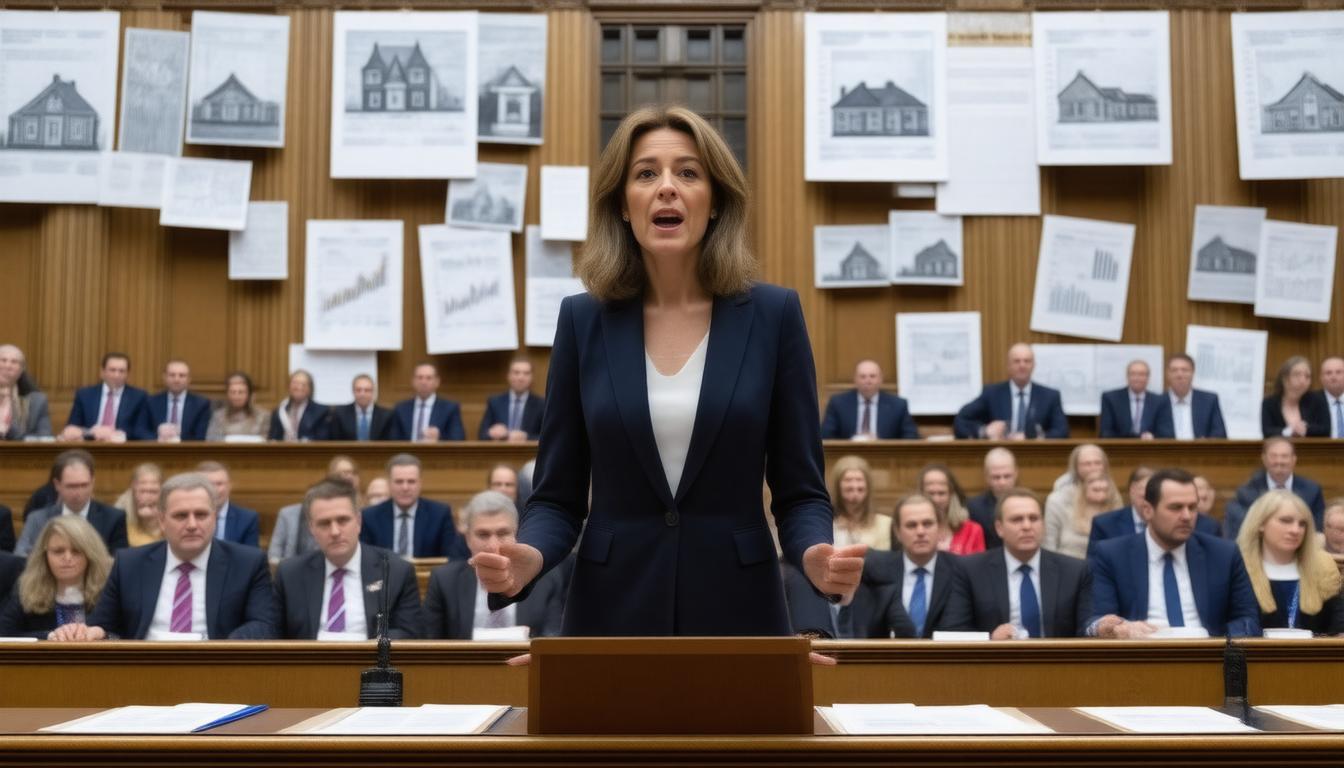Chancellor Rachel Reeves’ recent budget speech has unveiled pivotal measures that will significantly shape the landscape of the mortgage and property markets in the UK. This comprehensive overview highlights key changes, including the increase in Stamp Duty for second homes, implications for the private rented sector, and the outlook for residential property investments.
Key Takeaways
- The increase in Stamp Duty on second homes is expected to significantly affect property transitions in the UK.
- Concerns remain for the private rented sector as demand outpaces supply, leaving landlords under pressure.
- Positive signs for the housing market include stable inflation and a continued mortgage guarantee scheme, boosting first-time buyer confidence.
Impact of Increased Stamp Duty on Buyers and Investors
The recent budget delivered by Chancellor Rachel Reeves has marked a significant shift in the UK property market, particularly through an increase in Stamp Duty for second homes, rising from 2% to 5%, which is now in effect. This decision is expected to create challenges for individuals looking to transition to new primary residences, as it adds financial pressure during the buying process (Reeves, 2024). According to Angharad Truman from ARLA Propertymark, the budget has missed an opportunity to address the pressing issue of the imbalance in supply and demand within the private rented sector, further complicating the situation for landlords who are pivotal in maintaining rental housing availability (Truman, 2024). Conversely, Richard Carter, CEO of Lenvi, notes that the stable inflation rates and the absence of changes to Capital Gains Tax for residential properties could herald positive growth in the housing market, especially with the continued support of a 95% mortgage guarantee scheme which is anticipated to enhance first-time buyers’ confidence (Carter, 2024). Tim Parkes from RAW Capital Partners highlights a mixed response from investors; while the budget may not be well-received, it nonetheless offers clearer policy directions essential for informed decision-making regarding investments (Parkes, 2024). Moreover, Ross Turrell argues that despite the new obligations and regulations, the Buy-to-Let market remains resilient, having endured various past challenges, stressing the need for education and collaboration among stakeholders to adapt to the evolving landscape (Turrell, 2024). In summary, although the budget increases operational costs for property investors, it aspires to foster economic growth and stability, potentially enhancing long-term consumer trust in the property sector.
Market Stability and Growth Prospects Following the Budget Speech
In light of Chancellor Rachel Reeves’ recent budget speech, the UK property market appears poised for both short-term challenges and long-term growth potential. The increase in Stamp Duty on second homes is expected to deter some buyers, yet industry experts suggest that the measure might ultimately stabilize market dynamics by directing investment towards primary residences (Reeves, 2024). Additionally, while Angharad Truman’s concerns regarding the private rented sector highlight significant supply-demand issues, the ongoing pressure on landlords can lead to a reevaluation of the rental market strategies (Truman, 2024). Meanwhile, Richard Carter believes that the consistent mortgage guarantee scheme could serve as a vital tool for bolstering first-time buyer participation, which might offset some of the budget’s negative implications for overall market activity (Carter, 2024). Investors looking for clarity will appreciate the straightforward nature of the budget proposals as outlined by Tim Parkes, suggesting a potential increase in informed investment strategies moving forward (Parkes, 2024). Furthermore, Ross Turrell’s assertion of Buy-to-Let sector resilience indicates that, despite current uncertainties, the long-term fundamentals of the property market remain optimistic with adaptation and cooperation encouraged among stakeholders (Turrell, 2024). Thus, while immediate impacts are felt across the market, the focus on stability and growth initiatives suggests a cautious optimism for the future.





